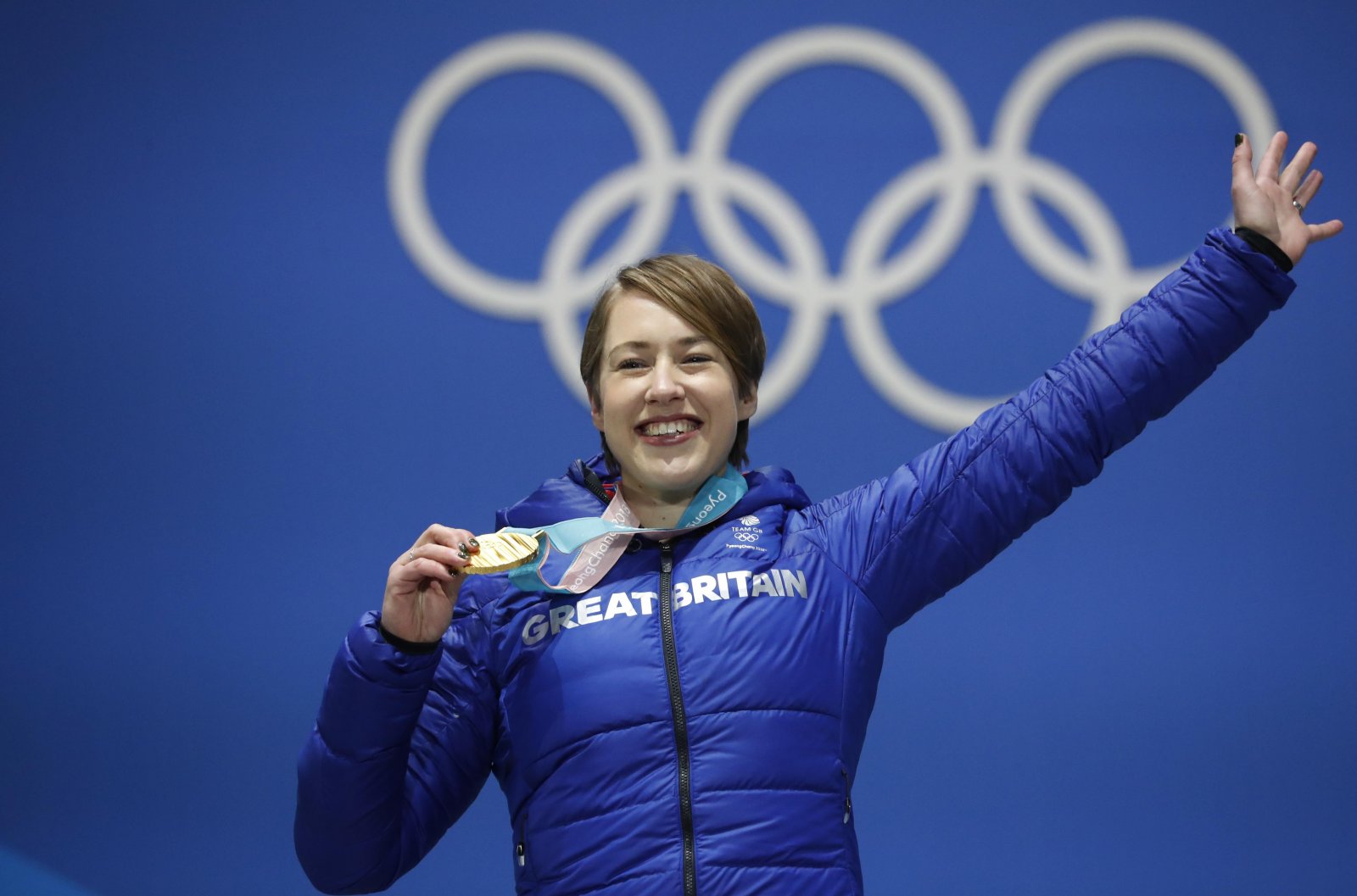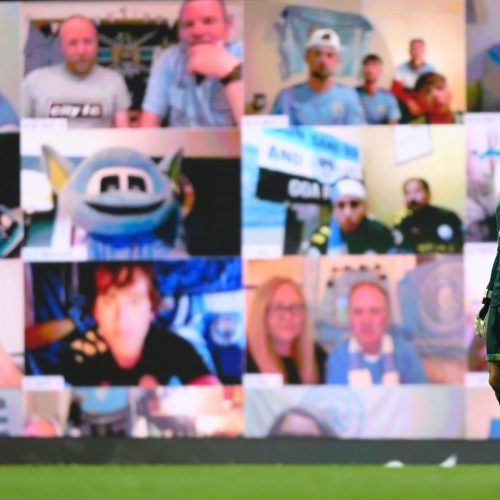The Two Sports: Celebrating the great sporting stories with This Girl Can
Sport is all about stories. Triumphs and falls, feats of determination and overcoming the odds. It’s about the pressure and the passion of the elite, and the fun and enjoyment of the casual participant, too. Sport is necessarily inclusive, at its best when everyone is involved.
Aptly then, in the few weeks leading up to International Women’s Day 2018, the sporting stories were dominated by women. Importantly, they weren’t women’s sporting stories: just good stories.
Gold medal winners at the Winter Olympics became household names overnight. Elise Christie suffered heartbreak on three separate occasions as she failed to finish any of her speed skating finals, succumbing to the unmitigated savagery one of the most brutal sporting events in existence. Laura Muir won two medals at the World Indoor Athletics Championships in Birmingham after taking a taxi ride from Glasgow to get there in time thanks to snow-induced cancellations on her train journey.
But that’s sport: it inspires highs, lows and stories of all kinds. It showcases the ecstasy, the agony, and the determination that only sport brings out of people, and it doesn’t just happen at elite level, either. Amateur sporting stories may not be as famous or as iconic, but they can be just as powerful to those participating.
Over three years ago, Sport England’s This Girl Can campaign aired its first TV ad. Two million fewer women were actively playing sport than men despite the fact that 75% of women who were asked responded that they wanted to get more active. Sport at all levels is filled with stories that everyone should be part of.
Happy #IWD2018 here's to phenomenal women everywhere #ThisGirlCan #PressForProgress pic.twitter.com/8DvfV1f9DE
— This Girl Can (@ThisGirlCanUK) March 8, 2018
The gender gap in participation between men and women would not have surprised anyone, but changing perceptions about sport, fitness and simply being active is a hugely important issue which goes beyond This Girl Can or anything any sport can offer: mental and physical health is a much wider goal than growing grassroots sport.
“The participation gap and the fact that so many women are dropping out or never getting involved causes so many long-term consequences, physical and mental wellbeing and they’re also missing out on the fun,” Kate Dale, campaign lead for This Girl Can campaign, tells me. “The idea is to change perceptions of what sport is, as well as taking the focus away from some of the things that stop women from opting to participate in sport.
“The fear of judgement, we know, has stopped so many women taking part in physical activity and to just get out there,” says Dale. “Partly because of the obvious physical and mental wellbeing benefits, but also when you’re physically active, your confidence levels are different and bigger, and I think it goes beyond just being active for the sake of being active and can spill into other areas of your life as well.”
That’s done by changing perceptions of what sport looks like. The images chosen by the This Girl Can campaign are specifically aimed at steering away from those which reinforce some of the excluding factors which can have a negative impact on women’s participation – either because sport is made to seem ‘unfeminine’ or because it can often appear that only the fittest, most attractive people in the stylish designer gear can get into fitness.
????♀️????♀️????♀️????♀️ #thisgirlcan #thisigirlcanrun #RunTogether #running #ukrunchat #midweekmotivation #humpday #happyhumpday #midweek pic.twitter.com/9Ov7cdY64f
— This Girl Can Run (@TGCRunning) February 7, 2018
“It’s important in changing what the sense of normality is,” says Dale. “What’s really important about the images we use at This Girl Can is that we reframe what women look like when they’re active, so you’re seeing women of all shapes and sizes, all backgrounds, all abilities. Not necessarily in the latest kit, not necessarily doing it brilliantly, but having fun doing it.”
“It’s doing it for the hell of doing it, not just because they want to get a six pack or a bum like Kim Kardashian, and doing it for how you feel inside, not what you look like externally. Physical activity changes your relationship with your body: it’s less about what it looks like and more about what it can do. You may have wobbly thighs, but they run a marathon.”
Dale talks about selling an attitude rather than a lifestyle. Over the last few years, we’ve seen a coming apart of fitness and sport, where sportswear brands and others are selling a lifestyle. The upshot of that is Instagram posts where idealised visions of running or fitness are portrayed along with impossibly delicious-looking healthy food and unobtainable sunny, empty beaches for a morning run. It’s helpful in getting some people active, but it’s unhelpful in reinforcing some of the negative aspects of body image and peer pressure that social media is known for perpetuating.
“For some people the idea of a match or running 12 miles is absolute heaven, and for others it’s total hell, but it doesn’t have to be something you don’t like doing. You maybe didn’t particularly like PE and sports at school and think that’s what sport has to be like, but it doesn’t have to be Sport with a capital ‘s’, or some formal organised thing. That’s not what it means to be active.”
Are you unleashing your inner beginner this weekend? Take pics and upload to our #ThisGirlCan app! ???? https://t.co/BWmVX5tQAc pic.twitter.com/6xS9BaGrdG
— This Girl Can (@ThisGirlCanUK) February 23, 2018
Changing ideas about sport and physical activity through a campaign like This Girl Can only goes so far, though, but with changing attitudes, increased women’s interest in sport and the fact
“When you look at the Winter Olympics, for the UK they’re not our traditional sports that we are good at so it doesn’t matter if they’re the men’s or women’s version – we just sit down and watch.”
“I remember there was one day where all our medal hopes were female athletes and the whole panel – so Clare Balding and the pundits – were all women as well and i’ve never seen that before and that’s all of a sudden opening up the idea that sport is a place where women belong as equally as men.”
That’s where we come back to the stories that come out of sport, the Winter Olympics and stories like those of Elise Christie’s are not women’s stories or, perhaps, even sporting stories. They are human stories, really. The heartbreaking defeat is just as inspiring as the great triumph, but that ensures that everyone knows sport is for everyone.
It’s a sad thought that many talented girls may have been lost to the world of sport over the years because they’ve been pushed into other things because of misconceptions of what it means to be active. Telling the great sporting stories – those at the elite level as well as those at all the others – is how we can inspire everyone to get the most they possibly can out of sport.
About author
You might also like
Interview: Nielsen Sports’ Spencer Nolan Discusses Covid-19’s Impact on Sport Media Rights and the Commercial Sport Landscape
Digital Sport’s Rupert Pratt and Thomas Smith recently sat down with Nielsen Sports Managing Director for the UK & Ireland, Spencer Nolan, to discuss Covid-19’s impact on sport media rights
Snack Media acquire Facebook’s largest global sports publisher, GIVEMESPORT
Snack Media today announced that its acquisition of GIVEMESPORT will create one of the largest sports publishers in the UK, further strengthening its offering to advertisers, rights holders and independent media owners.
Rupert Svendsen-Cook talks Veloce and the future of brands in the eSports industry
By Shania Bedi eSports is an undoubtedly booming industry, so much so that the International Olympic Committee have considered including it at future Olympic Games. Most of us are aware








